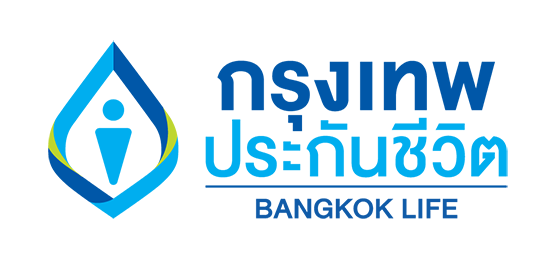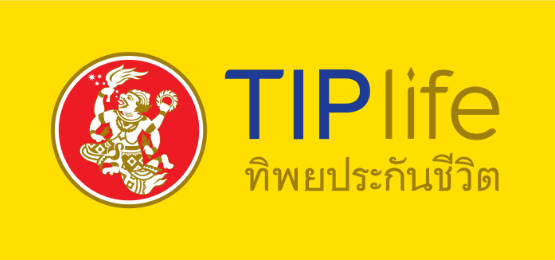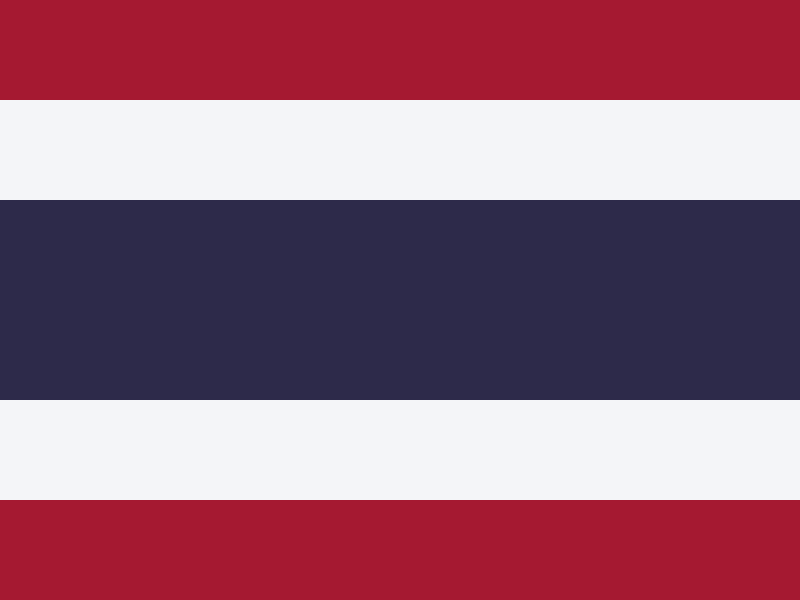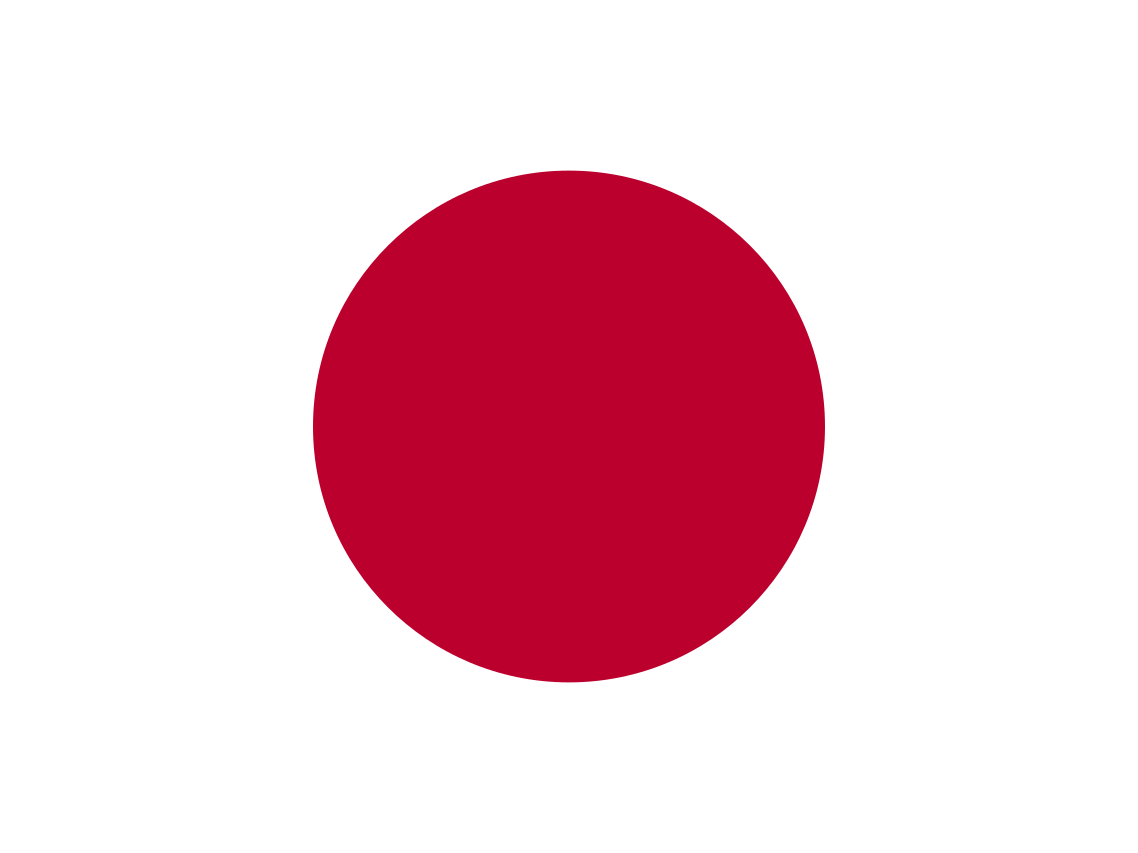Insurance
Life Insurance for Expats in Thailand
Save your tax in Thailand, with guaranteed insurance policies!!
You can save your tax up to 105,000 THB per year!!!
What is Life insurance?
A kind of income compensation from loss of life, permanent disability, or elderly of which the insurance company shall pay to the insured or the specified beneficiary for the amount as according to the insurance policy.
Types of Life Insurance
There are several types of life insurance with different coverage and benefit. Nowadays there are general life insurance and special insurance. Four types of general life insurance policies are:
And two types of special life insurance are:
What is Non-Life Insurance?
The Non-Life Insurance is all other kinds of insurance other than Life-Insurance of which the insurer agrees to indemnify the insured of the countable amount of loss or damage from any peril.
Four types of Non-Life Insurance:
1. Fire Insurance
2. Car accident insurance
3. Marine and Transport Insurance
4. Miscellaneous Insurance
Ref: Office of Insurance Commission (OIC)
With our experiences in insurance business since 2008 and certified as MDRT agents , our company provides the services for Life insurance and Health/Medical Insurance, as well as non-Life assurance for foreigners who have Visa(s) or work permit over 500 customers in Thailand. Both individuals and corporates (Keyman protection case).
Benefits for foreigners who purchased the insurance.
1. Life coverage when unexpected causes happened. The protection for you and your family.
2. Tax reduces.
3. Income protection and build up savings.
4. Reduce stress for health issues and bills.
Taxes reduces by insurance purchase.
1. Life insurance premium Maximum at 100,000THB
2. Health Insurance premium Maximum at 25,000THB
3. Annuity Insurance premium Maximum at 200,000THB
Note: Life insurance + Health insurance will be not over the maximum at 100,000 THB
The maximum tax reduces is 300,000 THB
Then you can reduce Tax maximum as = 300,000*25% = 75,000 THB per year (when your highest tax rate is 25%)
Eligible visa types
Permanent Residence Visa
Non-Immigrant Visa
*this visa type should be valid more than 1 year
Required documents
1. Copy of passport, visa(s)
2. Copy of work permit
3. Address in Thailand
4. Reduce stress for health issues and bills.
5. Fill in the Questionnaires from (Can be done by online)
*The insurance company may request additional documents.
Tax System in Thailand
Personal Income Tax (PIT)
Personal Income Tax (PIT) is a direct tax levied on income of a person. A person means an individual, an ordinary partnership, a non-juristic body of person and an undivided estate. In general, a person liable to PIT has to compute his tax liability, file tax return and pay tax, if any, accordingly on a calendar year basis. The person who has salary less than 25,833 per month does not need to pay PIT.
1. Taxable Person
Taxpayers are classified into “resident” and “non-resident”. “Resident” means any person residing in Thailand for a period or periods aggregating more than 180 days in any tax (calendar) year. A resident of Thailand is liable to pay tax on income from sources in Thailand as well as on the portion of income from foreign sources that is brought into Thailand. A non-resident is, however, subject to tax only on income from sources in Thailand.
2. Tax Base
Residents are defined as persons residing in Thailand at one or more times for an aggregate period of 180 days or more in any tax (calendar) year. Short-term residence is not defined under Thai tax regulations.
2.1 Assessable Income
Income chargeable to the PIT is called “assessable income”. The term covers income both in cash and in kind. Therefore, any benefits provided by an employer or other persons, such as a rent-free house or the amount of tax paid by the employer on behalf of the employee, is also treated as assessable income of the employee for the purpose of PIT. (for more details, please see appendix 1)
2.2 Tax Deduction
| Types of Allowances | Amount |
| Personal allowance | There is a personal allowance of THB 60,000 each for the taxpayer and the taxpayer’s spouse (provided that the taxpayer's spouse does not file one's own return). In addition, a deduction is allowed for the care of disabled or incapacitated family members of THB 60,000 per person and for the care of a disabled or an incapacitated person other than a family member of THB 60,000 in total. |
| Spouse allowance | 60,000 baht |
| Child allowance | 30,000 baht for each child and an additional THB 30,000 for the second child onwards born in or after 2018. (Unlimited child) A non-resident is allowed deductions for spouse, children only if they are resident in Thailand. |
| Expenses for antenatal care and child delivery | A deduction of up to THB 60,000 for each pregnancy is allowed for expenses paid by the taxpayer or spouse for antenatal care and child delivery. If the expenses for each pregnancy are not paid in the same tax year, the amount actually paid in each tax year is allowed, but in total no more than THB 60,000. |
| Parents allowance | 30,000 baht for each of taxpayer’s and spouse’s parents if such parent is above 60 years old and earns less than 30,000 baht |
| Life insurance premium paid by taxpayer or spouse | Amount actually paid but not exceeding 100,000 baht for Life insurance Life insurance premiums, in an amount not exceeding THB 100,000, paid by a taxpayer on one's own life are allowed as a deduction, provided that the insurance policies are for a minimum period of ten years and the insurer is carrying on a life insurance business in Thailand. If the policy includes a savings plan that provides an annual return to the policy holder exceeding 20% of the annual premium, the entire premium will be non-deductible. Qualified pension life insurance premiums paid to a Thai insurer are available as a deduction in an amount not exceeding 15% of total assessable income with a maximum of THB 200,000. Pays compensation to the insured person from the age of 55, continuing until the age of 85 years or more. However, this allowance, together with the contribution to a registered provident fund, the civil servant pension fund, the teacher's welfare fund, and the investment in retirement mutual funds and super savings funds, may not exceed THB 500,000 in the same tax year. In addition, the amount paid, up to a maximum of THB 10,000, for a life insurance premium for the taxpayer's spouse who does not earn income is also allowed, provided the marital status exists throughout the tax year. |
| Health insurance premiums | A health insurance premium, up to a maximum of THB 25,000, paid to a life or non-life insurance company in Thailand by a taxpayer for one's own health is allowed as a deduction. However, the deduction for this premium together with the above life insurance premiums paid cannot exceed THB 100,000 in total. |
| Approved provident fund contributions paid by taxpayer or spouse | Amount actually paid at the rate not more than 15% of wage, but not exceeding 500,000 baht |
| Super savings fund investment | An investment in a super savings fund is deductible in an amount not exceeding 30% of assessable income received which is subject to income tax, with a maximum of THB 200,000 in any tax year. However, if the taxpayer also has any of the contributions noted above under qualified pension life insurance, they must be included in the THB 200,000 limit. |
| Retirement mutual fund contribution | A contribution to an retirement mutual fund is deductible in an amount not exceeding 30% of assessable income received that is subject to income tax, with a maximum of THB 500,000 in any tax year. However, if the taxpayer also has any of the contributions noted above under qualified pension life insurance, they must be included in the THB 500,000 limit. |
| Home mortgage interest | Amount actually paid but not exceeding 100,000 baht |
| Social Security Fund Contribution paid by taxpayer or spouse | All employees are required to contribute to a social security fund an amount equal to 5% of their salary, up to a maximum contribution of THB 750 per month. Employers and the government are also required to contribute an equal amount. |
| Charitable contributions | Amount actually donated but not exceeding 10% of the income after standard deductions and the above allowances Donations to educational institutions, public health care facilities, religious institutions, approved charities, and the Office of Permanent Secretary, Prime Minister’s Office (up to 5 March 2021), to support protection from the spread of Covid-19 are deductible in the amount donated but not exceeding 10% of net income after all allowances and deductions. All donations in the following categories are allowed a double deduction to the extent that the combined amount does not exceed 10% of net income (assessable income after allowances and deductions): Support of education, e.g. buildings, computers, books, teachers, under projects approved by the Ministry of Education E-donations to educational institutions in either the public or private sector from 1 January 2020 to 31 December 2021 State hospitals E-donations to the Thai Red Cross Society, the Metrology System Development Fund, the Health System Development Fund, the Science and Technology Development Fund, and the Science Research and Innovation Fund. Donations in cash to political parties or in cash, assets or other forms of benefit to support activities for raising funds of political parties, up to THB 10,000. |
2.3 Tax Credit for dividends
Any taxpayer who domiciles in Thailand and receives dividends from a juristic company or partnership incorporated in Thailand is entitled to a tax credit of 3/7 of the amount of dividends received. In computing assessable income, taxpayer shall gross up his dividends by the amount of the tax credit received. The amount of tax credit is creditable against his tax liability.
3. Progressive Tax Rates
3.1 Progressive Tax Rates
Personal income tax rates applicable to taxable income are as follows
Tax rates of the Personal Income Tax
| Taxable Income (baht) | Tax Rate (%) |
| 0-150,000 | Exempt |
| more than 150,000 but less than 300,000 | 5 |
| more than 300,000 but less than 500,000 | 10 |
| more than 500,000 but less than 750,000 | 15 |
| more than 750,000 but less than 1,000,000 | 20 |
| more than 1,000,000 but less than 2,000,000 | 25 |
| more than 2,000,000 but less than 5,000,000 | 30 |
| Over 5,000,000 | 35 |
In the case where income categories (2) - (8) mentioned in 2.1 are earned more than 60,000 Baht per annum, taxpayer has to calculate the amount of tax by multiplying 0.5% to the assessable income and compare with the amount of tax calculated by progressive tax rates. Taxpayer is liable to pay tax at the amount whichever is greater.
3.2 Separate Taxation
There are several types of income that the taxpayer shall not include or may not choose to include such income to the assessable income in calculating the tax liability.
Income from sale of immovable property
Taxpayer shall not include income from sales of immovable property acquired by bequest or by way of gift to the assessable income when calculating PIT. However, if the sale is made for a commercial purpose, it is essential that such income must be included as the assessable income and be subject to PIT.
Interest
The following forms of interest income may, at the taxpayer’s selection, be excluded from the computation of PIT provided that a tax of 15 per cent is withheld at source:
1. interest on bonds or debentures issued by a government organization;
2. interest on saving deposits in commercial banks if the aggregate amount of interest received is not more than 20,000 baht during a taxable year;
3. interest on loans paid by a finance company;
4. interest received from any financial institution organized by a specific law of Thailand for the purpose of lending money to promote agriculture, commerce or industry.
Dividends
Taxpayer who resides in Thailand and receives dividends or shares of profits from a registered company or a mutual fund which tax has been withheld at source at the rate of 10 per cent, may opt to exclude such dividend from the assessable income when calculating PIT. However, in doing so, taxpayer will be unable to claim any refund or credit as mentioned in 2.4.
4. Withholding Tax
For certain categories of income, the payer of income has to withhold tax at source, file tax return (Form PIT 1, 2 or 3 as the case may be) and submit the amount of tax withheld to the District Revenue Office. The tax withheld shall then be credited against tax liability of a taxpayer at the time of filing PIT return. The following are the withholding tax rates on some categories of income.
| Taxable Income (baht) | Withholding tax rate (baht) |
| 1. Employment income | 5 - 35 % |
| 2. Rents and prizes | 5 % |
| 3. Ship rental charges | 1 % |
| 4. Service and professional fees | 3 % |
| 5. Public entertainer remuneration - Thai resident - non resident | 5 % 5 - 35 % |
| 6. Advertising fees | 2 % |
5. Tax Payment
Taxpayer is liable to file Personal Income Tax return and make a payment to the Revenue Department within the last day of March following the taxable year. Taxpayer, who derives income specified in c, d or f in 2.3 during the first six months of the taxable year is also required to file half - yearly return and make a payment to the Revenue Department within the last day of September of that taxable year. Any withholding tax or half-yearly tax which has been paid to the Revenue Department can be used as a credit against the tax liability at the end of the year.
6. Assessable Income
Assessable income is divided into 8 categories as follows :
6.1 income from personal services rendered to employers
6.2 income by virtue of jobs, positions or services rendered
6.3 income from goodwill, copyright, franchise, other rights, annuity or income in the nature of yearly payments derived from a will or any other juristic Act or judgment of the Court;
6.4 income in the nature of dividends, interest on deposits with banks in Thailand, shares of profits or other benefits from a juristic company, juristic partnership, or mutual fund, payments received as a result of the reduction of capital, a bonus, an increased capital holdings, gains from amalgamation, acquisition or dissolution of juristic companies or partnerships, and gains from transferring of shares or partnership holdings;
6.5 income from letting of property and from breaches of contracts, installment sales or hire-purchase contracts;
6.6 income from liberal professions;
6.7 income from construction and other contracts of work;
6.8 income from business, commerce, agriculture, industry, transport or any other activity not specified earlier.
7. Deductions and Allowances
Certain deductions and allowances are allowed in the calculation of the taxable income. Taxpayer shall make deductions from assessable income before the allowances are granted. Therefore, taxable income is calculated by :
TAXABLE INCOME = Assessable Income - deductions - allowances
Deductions allowed for the calculation of PIT
| Type of Income | Deduction |
| a. Income from employment | 50% but not exceeding 100,000 baht |
| b. Income received from copyright | 50% but not exceeding 100,000 baht |
| c. Income from letting out of property on hire | |
| 1) Building and wharves | 30% |
| 2) Agricultural land | 20% |
| 3) All other types of land | 15% |
| 4) Vehicles | 30% |
| 5) Any other type of property | 10% |
| d. Income from liberal professions | 30% except for the medical profession where 60% is allowed |
| e. Income derived from contract of work whereby the contractor provides essential materials besides tools | actual expense or 70% |
| f. Income derived from business, commerce, agriculture, industry, transport, or any other activities not specified in a. to e. | actual expense or 65% - 85% depending on the types of income |
Example for Tax Deduction from Insurance
Example Female, age 35 with income 1,200,000 per year, Tax payment will be
Then, the highest tax rate for this person will be 25%.
| Taxable Income (baht) | Tax Rate (%) |
| more than 1,000,000 but less than 2,000,000 | 25 |
| 0-150,000 | 150,000.00 | 0 | 0 |
| 150,001-300,000 | 150,000.00 | 5% | 7,500.00 |
| 300,001-500,000 | 200,000.00 | 10% | 20,000.00 |
| 300,001-500,000 | 200,000.00 | 10% | 20,000.00 |
| 500,001-750,000 | 250,000.00 | 15% | 37,500.00 |
| 750,001-1,000,000 | 250,000.00 | 20% | 50,000.00 |
| 1,000,001-2,000,000 | 34,150.00 | 25% | 8,537.50 |
| 2,000,001-5,000,000 | 30% | ||
| >5,000,001 | 35% | ||
| Total PIT amount | 123,537.50 |
The tax payment will be 123,537.50 THB
And when you purchase Saving insurance 100,000 THB and Pension 200,000 THB, you can save tax as follows;
After deducting for insurance payment at 300,000 THB.
TAX REDUCE WILL BE 60,915 THB EACH YEAR
(*the tax reduce amount will be depend on the income and tax rate each year)
Company we deal with

Bangkok Life: sample plans,

DHIPAYA Life:


